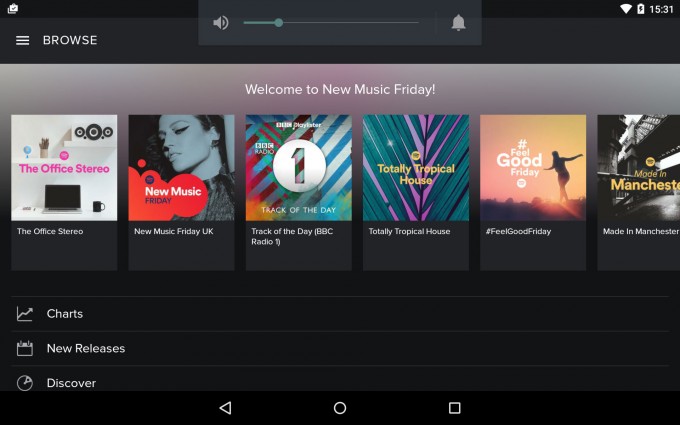- Qualcomm Launches Snapdragon 4 Gen 2 Mobile Platform
- AMD Launches Ryzen PRO 7000 Series Mobile & Desktop Platform
- Intel Launches Sleek Single-Slot Arc Pro A60 Workstation Graphics Card
- NVIDIA Announces Latest Ada Lovelace Additions: GeForce RTX 4060 Ti & RTX 4060
- Maxon Redshift With AMD Radeon GPU Rendering Support Now Available
Spotify Privacy Update, Wants Access To Your Life – Users Revolt
Just when you thought big data privacy concerns would die down, Spotify introduced an update to its privacy policy, granting it permission to access your photos, sensor and location data, your contacts, and your social media ‘stuff’. P.S.: you have to tell everyone you know that Spotify is doing this, for legal reasons.
In yet another instance of needless data gathering, Spotify wants to know everything about you, and everyone you know, in order to continue providing its service. Don’t like it? Tough, don’t use their services. We’re not talking just freemium users here either; this includes paid/premium users too.
“With your permission, we may collect information stored on your mobile device, such as contacts, photos, or media files. Local law may require that you seek the consent of your contacts to provide their personal information to Spotify, which may use that information for the purposes specified in this Privacy Policy.”
Collecting data on mobile apps isn’t new, and there have been numerous outcries from some very influential people over the years about how applications are continuing to gather information about you for pretty much no justifiable reason, apart from collectively vague terms such as ‘to improve services’. Oh, you’re also giving them permission to sell it to third parties.
It’s not just Spotify that’s jumping on the invasive privacy bandwagon. Pretty much every app out there requests permission for access to things that it should never need. Even banking apps want access to your photos, contact lists, social media… Why? (No, really, why? They have my money already!)
Spotify’s request for sensor data is more understandable because it’s part of its new Running feature, but for everyone else that doesn’t use that service, it’s yet another access point to your life; where you’ve been, how long for, how you traveled, what speed, and how long you stood still.
It’s this long list of data mining that’s brought about some changes to the way that mobile phones handle apps. The big feature for Android M (Marshmallow) that just can’t get here soon enough, is the ability to selectively disable access to features for certain apps. Of course, this won’t stop apps complaining and disabling services until they have full access again, but at least it’ll put pressure on them to stop this insanity (right?).
I propose a new system going forward with these companies. In exchange for their services (which I’m paying for) and access to my life, can we also have access to their entire contact list, photos, location data, and who they’re selling our details to? Thanks.
Update:
CEO Daniel Ek has released a statement and apology, outlining the changes in more specific detail. He would like to stress the fact that the details of the changes are with explicit permission on request.





